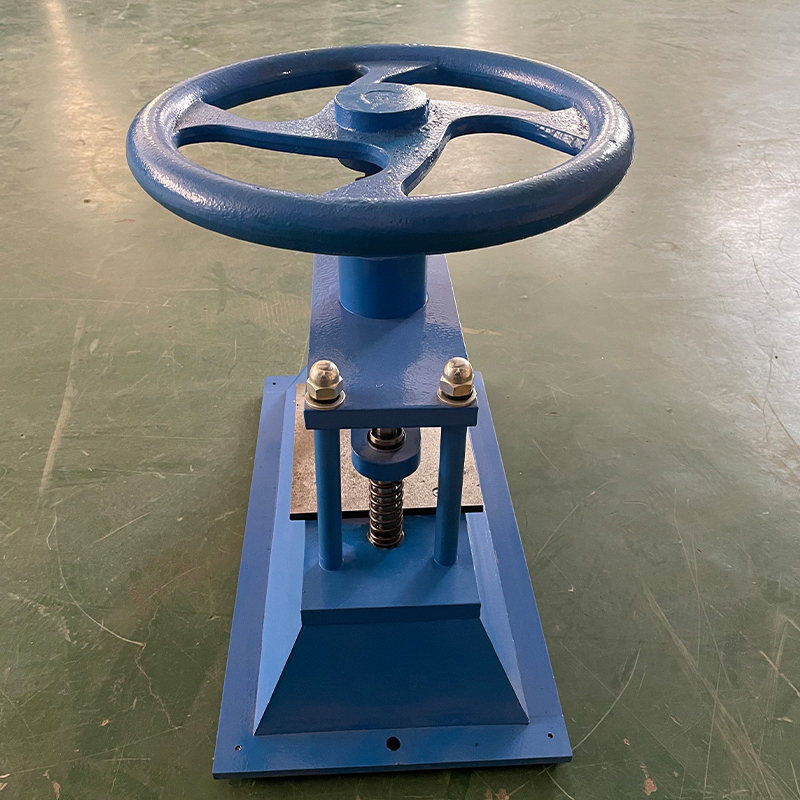Manual Tensile Testing Machines Suppliers for Quality Assurance and Material Testing Solutions
The Rise of Manual Tensile Tester Machine Exporters
In the ever-evolving landscape of industrial testing equipment, the demand for manual tensile testers has seen a significant increase. These machines, designed to evaluate the tensile strength and elasticity of materials, play a pivotal role in various industries, including textiles, polymers, metals, and construction. This article explores the burgeoning market for manual tensile tester machine exporters, highlighting their importance, key features, and the factors driving their global demand.
Understanding Manual Tensile Testers
Manual tensile testers are specialized machines used to measure the elongation and tensile strength of materials. They operate by applying a controlled pulling force to a sample until it deforms or breaks, allowing for precise measurements of stress and strain. Unlike automated systems, manual testers are generally less expensive, require less space, and offer greater versatility, making them ideal for small laboratories and companies with limited budgets.
These machines can test a variety of materials, including wires, fibers, films, and even small metal samples. Most manual tensile testers consist of a frame, a testing grip, a load cell for measuring force, and a scale or digital display for capturing data. Many modern versions come equipped with additional features such as data logging and enhanced measurement accuracy.
The Export Market Landscape
The global market for manual tensile tester machines is experiencing significant growth, driven by increasing industrialization and the expansion of manufacturing sectors worldwide. Exporters of these machines are leveraging advanced technologies and manufacturing processes to cater to the rising demand. Countries with robust industrial bases, such as China, Germany, and the United States, are among the leading producers and exporters of tensile testing equipment.
With the globalization of trade, manual tensile tester machine exporters are facing both opportunities and challenges. On one hand, there is a burgeoning demand for quality testing equipment in emerging markets, including Southeast Asia, Latin America, and parts of Africa. On the other hand, exporters must navigate complex regulatory environments, export tariffs, and competition from low-cost manufacturers.
Key Features that Attract Exporters
1. Cost-Effectiveness Manual tensile testers offer an economical solution for many businesses. They are typically less expensive than their automated counterparts, making them accessible to smaller manufacturers and laboratories.
manual tensile tester machine exporters

2. Versatility These machines can be used to test a wide range of materials and can accommodate various specimen sizes, which makes them a preferred choice for diverse testing applications.
3. Simplicity and Ease of Use Manual tensile testers do not require extensive training to operate. Their straightforward design allows operators to conduct tests quickly and efficiently.
4. Durability Many manual testers are built to withstand rigorous use in demanding environments. This durability appeals to exporters looking to establish a reputation for reliability and quality.
5. Customization Opportunities Exporters can cater to specific market requirements by providing customized solutions. This could include modifications in design or additional features according to client needs.
Factors Driving Global Demand
Several factors are fueling the global demand for manual tensile tester machines
- Increased Quality Control Standards Industries are increasingly adopting stringent quality control measures, making accurate testing equipment essential. - Technological Advancements Innovations in materials science have led to greater importance placed on material testing, thereby driving demand for reliable testing machinery. - Growth of Manufacturing Sectors As countries industrialize, the need for reliable testing equipment to ensure product quality has become paramount.
Conclusion
The manual tensile tester machine export market is thriving as industries worldwide recognize the importance of robust material testing solutions. With their affordability, versatility, and ease of use, manual tensile testers are becoming indispensable tools in quality control and research and development. As more manufacturers seek to enhance their testing capabilities, the demand for these machines is set to rise, offering substantial opportunities for exporters. They must, however, remain vigilant and adapt to the dynamic landscape of global trade to maximize their success in this competitive industry.
-
reliable-performance-testing-with-advanced-aging-chamber-solutions
NewsAug.23,2025
-
advancing-precision-with-profile-projector-technology
NewsAug.23,2025
-
uv-led-ultraviolet-crosslinking-technology-innovation-and-prospects
NewsAug.23,2025
-
ensuring-safety-and-compliance
NewsAug.23,2025
-
electrical-properties-testing-in-modern-applications
NewsAug.23,2025
-
universal-tensile-testing-machine-applications-in-modern-electrical-and-material-testing
NewsAug.23,2025
 Copyright © 2025 Hebei Fangyuan Instrument & Equipment Co.,Ltd. All Rights Reserved. Sitemap | Privacy Policy
Copyright © 2025 Hebei Fangyuan Instrument & Equipment Co.,Ltd. All Rights Reserved. Sitemap | Privacy Policy

